EOFY is creeping up fast, and we like to encourage business owners to be proactive and make any little adjustments needed before June 30 hits in order to have optimal results for your financial year.

Over at Optimised Accounting, May is tax planning time. We invite all of our managed clients in for a video call/meeting. to discuss how they are tracking financially, what to expect when we prepare the annual tax return, and if there’s anything we suggest you should do before EOFY.
If you don’t have a Business Accountant like us taking care of you, here’s a list of things to consider and/or seek advice on:
Reporting JobKeeper support
JobKeeper payments are assessable income, so they need to be included in your business’ tax return if you operate through a company structure. Entities operating as a partnership or trust also need to report JobKeeper payments as business income in their partnership or trust return.
If you are a sole trader who received JobKeeper payments, you need to include your payments as business income in your individual tax return.
Cash Flow Boost credits
On the other hand, the government’s Cash Flow Boost payments to employers with a turnover of less than $50 million are classed as non-assessable income. This means your business won’t pay tax or GST on them.
How these credits are reported in your tax return or financial statements depends on your business structure, so contact us for more advice.
Budget tax changes and incentives
It’s also sensible to consider whether or not you plan to take advantage of the government’s temporary full expensing measure in this financial year. This measure applies from 6 October 2020 to 30 June 2022 for businesses with turnover of up to $5 billion. The initiative allows you to deduct the full cost of eligible depreciable assets of any value in the year they are first used or installed ready for use.
Another tax decision to start mulling over is whether to use the new temporary loss carry-back measures. These allow you to offset tax losses against previous business profits on which tax has been paid to generate a tax refund. Losses incurred in 2019-20 and 2020-21 can be carried back against profits made in or after 2018-19. If you are eligible, you can elect to receive a refund when you lodge your 2020-21 return.
Defer billing
If you aren’t in desperate need of funds, think about holding off on your invoicing until after 30 June. This will mean you pay tax on the income next financial year rather than now. Bear in mind however that some customers might want you to bill them before 30th June so that they can claim the deduction on it.
Bring forward expenses
If you are in a position to do so, bring forward any expenses. This means if there is a work expense that you know is pressing but you have put it off, go ahead and organise it now. You will then be able to claim the deduction in this financial year rather than wait until next year.
If you have any invoices that are due before June 30, pay them so they are included in your records.
Write off bad debts
Review your outstanding invoices prior to 30th June to identify any bad ones. If you have chased them up already a few times and it looks unlikely they will be paid, simply write it off.
Do a stocktake
If you are a product based business, identify and dispose of any obsolete, slow-moving or damaged stock so you can claim a tax deduction for the write-off.
Employee super contributions
Your employees superannuation is due at 4 times throughout the year (July, October, January and April).
It is very important that these are each paid on time, as the ATO are really starting to crack down on late payments. Even one day late can result in a fee.
Since the SG Amnesty finished in September last year, the ATO has indicated it will actively check compliance in this area, making it important to ensure your reporting and payments are up to date.
(It is also unfair to your staff to have unpaid super, but we don’t need to tell you that).
If you have any outstanding super payments, it’s time to process these.
In order to get the deduction, payments must reach Super accounts before 30th June 2021, which means you will need to transfer by 21st June to allow time for processing.
Superannuation funds must receive the funds before 30th June, so it’s important that you pay with ample time before hand.
Reconcile Xero
Ensure your Xero is reconciled, this should be obvious 🙂
Run your business as a company?
Do you operate your business out of a company structure? If so, remember that there is a line between your personal finances and those of your company.
If you have taken funds out of the company that haven’t been declared as a dividend or wage, those funds may be sitting on the company accounts as a loan to you from your company. Ensuring this is considered and handled appropriately means you’ll avoid being taxed twice on the same income!
Consider your personal tax
Now is also a great time to review your personal tax preparations for 30 June.
Look at personal tax decisions such as additional superannuation contributions, getting a depreciation schedule drafted for your property and making sure you can substantiate any work related or investment expenses that you may have.
Cryptocurrency
Cryptocurrency was very hot this year, and a lot of people bought some. Some made money, some lost.
In short, if you’ve dealt with crypto at all this financial year you need records of everything.
The ATO has a special taskforce dealing specifically with cryptocurrency this financial year.
It is considered an asset for tax purposes, rather than a form of currency.
This means that gains or losses made on disposal or exchange of cryptocurrency will often be captured under the tax system – regardless of whether you’re switching between currencies or ‘cashing out’ your asset into AUD.
You will need to keep records of all of your trades in order to work out whether you’ve made a taxable gain or loss.
Talk to your Accountant
If you are struggling to stay on top of your tax obligations due to the pandemic, make sure you tell your Accountant (or the ATO if you don’t have a Business Accountant) to discuss deferring your tax payments or perhaps whether you are eligible to vary your quarterly PAYG instalments.
If your Accountant has offered a Tax Planning session, this could be quite beneficial so it’s worth doing this if available.
Want help?
If you feel like you could use some support with your business, we’d love to hear from you.
Read here how we work with business owners just like you, and get in touch today.
This article is a mesh of a few articles put together – some written by a third party and some by us.
The featured image is copyright of Xero. Thanks Xero!
Learn more tips for optimising your business
There are many tricks to the trade, and if you want to make the most of them to grow your business, jump into our email newsletter:






